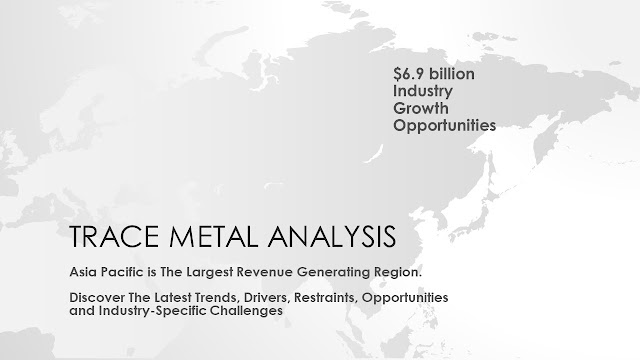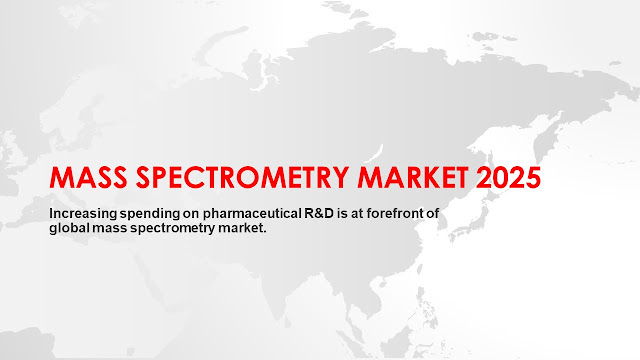Trace Metal Analysis Market is Growing With Increasing Demand From Applied Markets
The growth of trace metal analysis market is mainly driven by the
stringent safety and quality regulations and new international cGMP & cGDP
certification for pharmaceutical excipients, increasing spending on life
science R&D, advancements in technologies, growing preference to outsource
analytical requirements to third-party service providers, increasing demand
from applied markets, rising opportunities in emerging countries, and the need
to comply with revised USP guidelines.
Trace Metal Analysis Market Dynamics: Impact Analysis
1. Growing
Preference to Outsource Analytical Requirements to Third-Party Service
Providers
2. Emerging Countries
3. Technological Advancements
4. Increasing Demand From Applied Markets
5. Rising Life Science R&D Expenditure
6. Growing Demand for Speciation Analysis in Trace Metals
The global trace metal analysis market is projected to reach USD 6.9 billion by 2024 from USD 4.4
billion in 2019, at a CAGR of 9.5%.
Key Questions Addressed in The Report:
1. Who are the top 10 players operating in the global Trace
Metal Analysis market?
2. What are the drivers, restraints, opportunities, and challenges in the Trace
Metal Analysis Industry?
3. What are the opportunities
for stakeholders and provide details of the competitive landscape for key
players?
4. What will be growth of Trace Metal Analysis in North America, Europe, Asia
Pacific, Latin America, and the Middle East and Africa?
Download PDF Brochure:
https://www.marketsandmarkets.com/pdfdownloadNew.asp?id=83951074
Environmental Application Segment:
Based on application,
the environmental testing segment is expected to account for the largest share
of the market in 2019. The large share of this segment can mainly be attributed
to increasing R&D investments by major industry players; an increasing
number of regulatory actions for controlling environmental and water
pollutants, reducing emissions, and minimizing human and environmental exposure
to toxic chemicals and wastewater; and the growth of end-user application
industries.
ICP-MS Technology Segment:
On the basis of technology, the ICP-MS segment is expected to account for
the largest share of the services market in 2019. The large share of the market
is mainly due to factors such as the increasing demand for the analysis of a
diverse range of sample matrices; growing focus on the identification of
low-level contaminants in chemical products; increased stringency of quality
assessment and testing in the beverages, foods, cosmetics, and pharmaceutical
industries; and the growing demand for metal speciation.
Asia Pacific Region to Dominate The Market:
The trace metal analysis market in APAC is expected to grow at the highest
CAGR during the forecast period. This is due to the growing use of trace metal
analysis in the food industry, strategic expansion by market players in the
Asia Pacific region, emerging biotech industry, increasing focus on soil
testing, and the growing food safety and environmental safety concerns in
several Asia Pacific countries. The increasing R&D funding, a growing
number of CROs, and favorable government initiatives to promote the growth of
pharmaceutical and biotechnology industries are some of the other major factors
driving the growth of the Asia Pacific market.
Request Sample Pages:
https://www.marketsandmarkets.com/requestsampleNew.asp?id=83951074
Key Players:
Prominent
players in the global trace metal analysis industry are Agilent
Technologies (US), Thermo Fisher Scientific (US), PerkinElmer, Inc. (US),
Analytik Jena AG (Germany), Bruker Corporation (US), Hitachi Hi-Technologies
Corporation (Japan), Rigaku Corporation (Japan), Shimadzu Corporation (Japan),
Eurofins Scientific (Luxembourg), Intertek Group PLC (US), SGS S.A.
(Switzerland), Bureau Veritas S.A. (France), TÜV SÜD (Germany), and LGC Ltd.
(UK).




Comments
Post a Comment